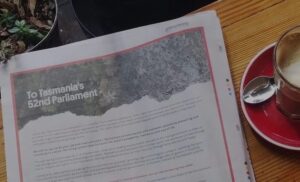How is Australia’s system unfair?
If you get caught speeding in Australia, you will be fined with a flat-rate traffic fine. Exceeding the speed limit by 12km/h in New South Wales earns you a $361 fine, whether you are on government benefits or a billionaire. This is not a fair system.
What about the principle: same offence, same price?
If you earn $50,000 a year, a $361 fine is equal to more than a third of your weekly salary. If you earn $200,000, you have that much by lunctime on Monday.
So, while a speeding fine is nothing more than annoying to a wealthier person, someone on a low-income might have to choose between paying the fine and a medical bill or food.
A minor fine left unpaid can lead to a vicious circle of accrued debts, leading to a loss of licence and further loss of income. In some cases, it can even lead to jail time. Unpaid fines are in fact one of the top concerns for people seeking legal aid.
Australia Institute research shows that a proportional traffic fine system, as is in place in Finland, would be much fairer. In practice, the Finnish system calculates a fine based on the driver’s disposable income and whether they have dependents. Same offence, same proportion of income.
Our modelling estimates that under a proportional system, someone in NSW earning $50,000 a year would see their fine for a 12km/h speed excess decrease to around $171, whereas for someone earning $200,000, it would increase to around $885.
What if a person has no income? Does this mean students and unemployed people can speed as much as they want?
No. The Finnish system is designed so that there is a minimum level of fine: we calculate this as between $32 and $300 depending on the offence. Australia’s existing demerit point system also ensures that there are consequences for dangerous driving.
What about drivers’ behaviour? Would a proportional system increase road safety?
While there’s some evidence that speeding is a “luxury crime”, meaning that wealthy people are more likely than low-income individuals to receive a speeding fine, the main aim of a proportional traffic fine system is fairness.
As far as road safety goes, research shows that driver behaviour is more affected by external elements like road infrastructure, education campaigns and perceptions of enforcement.
Isn’t this just a way for states to raise revenue?
Our modelling shows that, overall, lower-income drivers would see their fines decrease in all states, whereas higher-income drivers would see their fines increase. Overall, traffic fines represent a very small proportion of a government’s revenue.
If there were any additional revenue, it could be directed to improve road safety, as is already the case in states like Queensland and New South Wales.
Sounds great! So, what do we do now?
Some states are already considering options to make the traffic fine system fairer: the ACT is considering income-based fines for minor traffic offences, and NSW has already introduced a discount on some fines for people on government benefits. Our report models how a Finnish-style proportional speeding fines system would work in practice and demonstrates its relevance at a time when cost of living is pushing many Australians into financial difficulties.
Related research
Between the Lines Newsletter
The biggest stories and the best analysis from the team at the Australia Institute, delivered to your inbox every fortnight.
You might also like
Open Letter to the Tasmanian Government
The Australia Institute and 30 other organisations from around Tasmania have published an open letter with 10 asks for the environment from whomever forms Tasmania’s next government. When cross-benchers and major parties have struck successful power-sharing agreements elsewhere, they covered policy as well as procedure, making now the ideal time for progress.
One year on from the State of the Environment Report, what’s changed?
(Spoiler alert: nothing!)



